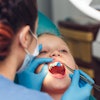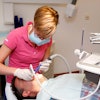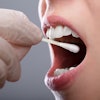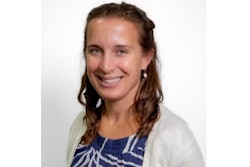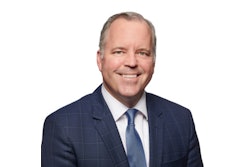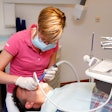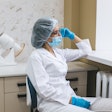It is hard for some of us to believe that 2024 is almost done. With it being early November, 2025 is on the horizon, and we will soon celebrate New Year's Day.
 Tracee S. Dahm, MS, RDH.
Tracee S. Dahm, MS, RDH.
The beginning of a new year is always an emotional one. Many of us look forward to a fresh start and of things to come.
Some have already planned new hobbies, skills, trips, or tasks they want to learn or complete during the upcoming new year. Others look at a new year as a way to completely morph from past experiences so that they can change their course in life. No matter how one feels about 2025 approaching, it will be here in less than 60 days!
Sometimes, even in the professional setting, there is excitement about the start of a new year because professionals are yearning for more. Dental professionals, particularly dental hygienists, are also excited to celebrate the upcoming new year because they know that a new year will bring about the possibility of changes in their careers.
Although practicing dental hygienists are unique to their practice setting and experience, many of us share common goals that we feel strongly will advance our profession and bring better access to care for everyone.
Some dental hygienists not only feel that changes to our profession are better for the public but that changes will also help make many of our daily tasks easier. A brief survey resulted in three common hopes for dental hygienists in 2025:
- Autonomy
- Artificial intelligence (AI)
- Oral health awareness
Greater autonomy
Autonomy can have many different definitions. In this case, we are using it in the context of how dental hygienists have the right and independence to practice professionally.
Dental hygienists are governed by their state boards. Research has shown that if dental hygienists have more autonomy, it could reduce preventive costs and improve access to care. However, many states vary as to what they will and will not allow a dental hygienist to provide in their care, and most have to have agreement from a dentist overseeing their plan of action.
Recently, more concerns have been raised about the dental hygienist workforce shortage and how it's impacting public health. With a growing number of states granting more autonomy to the dental hygiene license, they may kill two birds with one stone, because the public would gain additional oral hygiene services that dental hygienists could provide.
Some feel that more autonomy may be granted after years of petitioning, because without expanding license restrictions, there will continue to be a shortage of providers, ultimately hurting those seeking oral care. Excitingly enough, dental hygienists have various avenues in which expanding autonomy may happen. There is a compact dental and dental hygiene license in the draft stages. Also, some states hope to expand their scope of practice for dental therapy.
Introduction of AI
Another change dental professionals look forward to in 2025 is AI. AI integrates all of our lives daily, both professionally and personally. AI is now woven into our daily lives, and some believe it's a new frontier. However, AI has long been part of the dental field. For almost two decades, digital dental software and radiographs have transformed dental offices.
As time goes on, more facets of dentistry are benefiting from AI, complementing the work of dental professionals. Dental hygienists can now use AI for chart note dictation, interpreting radiographs and other imaging, periodontal probing, capturing impressions, patient education, and patient scheduling.
With the rapid evolution of computer systems, it's exciting to imagine what AI will bring next to healthcare. As more dental hygienists leverage AI, both they and their patients can reap the benefits. While new technologies often come with high initial costs, eventually, more practices will adopt AI. Over time, we'll see more AI applications in dentistry and more dental professionals integrating it into their practice.
Increased public awareness
Finally, dental hygienists hope to significantly raise public awareness about the link between oral health and overall body health in 2025. For years, the American Dental Hygienists' Association has emphasized preventive care through community outreach and advertising, educating the public on proper oral care and its connection to systemic conditions like cardiovascular disease and diabetes due to oral microflora.
Technological advances, especially social media, have expanded hygienists' reach, allowing them to educate more people on the importance of oral care. More medical professionals are acknowledging the connection between systemic conditions and oral bacteria accumulation and are promoting regular dental checkups and professional hygiene appointments.
Because of this collaboration and public support, dental hygienists aim to earn the same respect as their fellow licensed medical professionals. A report noted that dental checkups increased in 2023, with prevention driving more patients to the dentist.
As public health knowledge grows, future benefits could emerge from this heightened understanding. It is exciting to think of how much potential the next 365 days hold for gaining more of the public's attention when it comes to oral hygiene.
While this list was brief, there are additional changes dental professionals anticipate in the future. Hopefully, the year 2025 brings about transformations that all of us as dental professionals can feel accomplished and satisfied with.
No matter how you feel about these specific ideas for our profession, maybe you will be the catalyst to spark amendments that are necessary to improve the dental profession. I personally cannot wait to see what is yet to come.
Happy new year!
Editor's note: References available upon request.
Tracee S. Dahm, MS, RDH, is an adjunct clinical instructor for the North Idaho College School of Dental Hygiene in Coeur d’Alene, ID. She also works in private practice. Dahm has published articles in several dental journals, magazines, and a textbook. Her research interests include trends in dental hygiene and improving access to dental care for the underserved. She can be reached at [email protected].
The comments and observations expressed herein do not necessarily reflect the opinions of DrBicuspid.com, nor should they be construed as an endorsement or admonishment of any particular idea, vendor, or organization.
